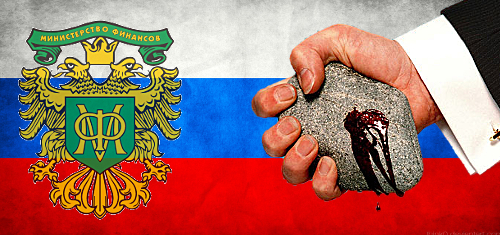 Russia’s bookmakers are blinking back disbelief after their government proposed yet another tax on their online activities.
Russia’s bookmakers are blinking back disbelief after their government proposed yet another tax on their online activities.
On Wednesday, Russia’s Ministry of Finance published a notice of its plans to amend federal law via the imposition of a 10% tax on online betting sales, effective December 2016. Public comment on the proposal is being solicited until May 5.
The 10% tax is on top of the recently announced RUB 2.5m to 3m (US $36,600 to $43,900) fees Russian bookies must pay each of the country’s 12 economic regions in order to accept online wagers from punters in those regions. Bookies have also recently been ordered to pay RUB 60m ($890k) per year to Russian sports federations.
As if that wasn’t bad enough, Russian bookmakers have expressed some confusion over what portion of their business will face the new 10% tax. The Ministry’s notice states that the tax applies to ‘sales,’ which most observers are reading as ‘revenue,’ but the actual bill has yet to be published and some bookmakers have suggested the tax will apply to online betting turnover.
Several bookies have gone on record as saying a 10% turnover tax would doom their online operations to unprofitability. Other bookmakers complained that the government’s recent moves have been conducted entirely without input from betting industry stakeholders, but, you know, Russia.
Oleg Zhuravsky, head of Liga Stavok, which became the first Russian betting operator to receive an official online sports betting license this year, likened the government’s tax demands to a local parable about a farmer refusing to feed a donkey, while still demanding that the donkey perform his labors. Zhuravsky told Championat.com that a 5% tax would be more palatable, while 2% would be “even better.”
The notice of the new tax was published the same day that Finance Minister Anton Siluanov announced that the government was hell bent on capturing some of the ‘grey’ market revenue that was currently going untaxed. Siluanov didn’t offer specifics on how he defined ‘grey’ market gambling, but perhaps he was referring to the deathly pallor currently adorning bookmakers’ faces.
